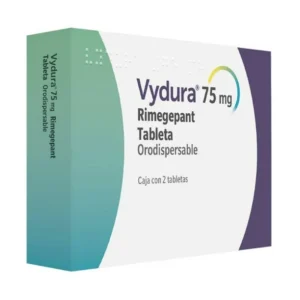1. Ibuprofen (Advil, Motrin)
- Use: Reduces migraine pain, inflammation, and symptoms like light sensitivity.
- Description: A non-steroidal anti-inflammatory drug (NSAID) that works by blocking substances that cause inflammation and pain, commonly used for mild to moderate migraines.
- Forms: Tablets, capsules, liquid, and gel caps.
- Notes: Take with food to avoid stomach irritation.
2. Acetaminophen (Tylenol)
- Use: Relieves mild to moderate migraine pain.
- Description: An over-the-counter analgesic that works to reduce pain and fever but does not have anti-inflammatory properties.
- Forms: Available as tablets, capsules, and liquid suspensions.
- Notes: Easier on the stomach but excessive use can lead to liver damage.
3. Aspirin
- Use: Reduces migraine pain and inflammation.
- Description: Another NSAID that can relieve mild to moderate migraines. It is sometimes used in combination with caffeine to enhance effectiveness.
- Forms: Tablets, chewables, and enteric-coated tablets.
- Notes: Should not be used by children due to the risk of Reye’s syndrome.
4. Migraine-Specific Medications (Triptans)
- Use: Specifically designed to treat migraines.
- Description: Triptans (e.g., sumatriptan, rizatriptan) are prescription drugs that narrow blood vessels around the brain, blocking pain pathways and relieving symptoms such as nausea and sensitivity to light.
- Forms: Tablets, nasal sprays, and injections.
- Notes: Effective for moderate to severe migraines but can cause side effects like dizziness and drowsiness.
5. Ergotamine
- Use: Treats severe migraines.
- Description: A prescription medication that works by constricting blood vessels in the brain. Often used when triptans are not effective.
- Forms: Tablets, nasal sprays, and suppositories.
- Notes: May cause nausea or other side effects and is not suitable for people with cardiovascular conditions.
6. Caffeine
- Use: Can help relieve migraine pain, especially when combined with other medications. Migrain Relief
- Description: Often found in combination products (like Excedrin) with aspirin or acetaminophen. Caffeine can enhance the effectiveness of pain relievers.
- Forms: Tablets, capsules, and part of combination medications.
- Notes: Excessive use can lead to dependence or rebound headaches.
7. Preventive Medications
- Use: Helps reduce the frequency and severity of migraines.
- Description: Medications like beta-blockers (e.g., propranolol), antidepressants, and anticonvulsants (e.g., topiramate) are used to prevent migraines in those with frequent or severe attacks. Migrain Relief
- Forms: Tablets or capsules.
- Notes: Taken daily and requires consistent use to be effective.
Migraines can be complex, and finding the right treatment may require a combination of medications and lifestyle adjustments. Always consult a doctor for tailored migraine relief strategies. Migrain Relief
Sale!
Migrain Relief
£130.00 – £390.00

